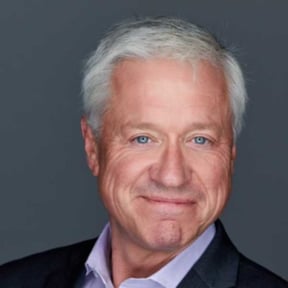Mastering the 'Biggest Weakness' Interview Question
The job interview is progressing well. You've explained your skills and highlighted your achievements, and the interviewer seems impressed. Then comes the curveball question – "What is your biggest weakness?"
This question can leave even seasoned candidates flustered… unless they are prepared. After all, you're trying to sell yourself, not highlight shortcomings. Yet, handled strategically, this question is a powerful opportunity to demonstrate self-awareness, a growth mindset, and problem-solving abilities – desirable qualities to potential employers.
Why do interviewers ask about your weaknesses?
Look at it from the hiring manager's perspective. They have a slate of candidates with impressive accomplishments and glowing references. Yet, they know that even the most impressive candidates are human beings. Nobody is perfect. So, they ask a question that cuts a bit deeper to get a glimpse of the real person behind the polished presentations. Here are some additional reasons why interviewers use this question:
· Testing for self-awareness – We all want to hire people who understand their strengths and shortcomings. Candidates who can articulate their weaknesses with appropriate humility signal that they are honest and self-aware.
· Looking for growth potential –The best employees can adapt, which is especially important today. Highlighting weaknesses while outlining the steps taken to navigate around them shows a commitment to learning.
· Valuing problem-solvers – Hiring managers want to see how you react to the question. Do you get paralyzed or give a poor answer? Or do you assess the situation and seek solutions? Articulating a weakness paired with a proactive mitigation strategy shows you're not simply highlighting a flaw but demonstrating how you have understood and managed it.
So, when you hear the "weakness" question, remember that the interviewer is looking for qualities that make you a self-aware and adaptable asset to their organization.
Being authentic and strategic
Confessing imperfection in a job interview feels unnatural. But nobody believes you're without flaws. Denying you have any imperfections signals either a lack of insight or dishonesty.
So, how do you thread the needle? Here's a good approach:
· Be authentic – "I work too hard" or "I care too much" are interview killers. So, pick a genuine weakness, one you've actually struggled with. But be strategic. It shouldn't be a deal-breaker for the job you're after.
· Find the right balance –Think of your weakness as the flip side of your strength. Does your meticulous focus on quality sometimes hinder your productivity? That's a relatable weakness you can talk about.
· Avoid fatal flaws – Nobody will hire someone who admits to struggling with the core competencies of the job. A weakness should be something you grapple with, not something that makes you unsuitable for the position.
Choosing the right weakness to discuss is a balancing act. It's about being transparent enough to show self-awareness but carefully framing it to allow you to shine as the right fit for the role.
Mastering the "Flip Side" of Your Weakness
Remember, answering the weakness question isn't just admitting a flaw; it's showing how you've learned to compensate for it.
Consider this example: "The downside of being highly creative is that I sometimes struggle with the details." By itself, that statement leaves the potential employer a bit nervous. Were you the one who pitched that brilliant campaign, which was undercut by sloppy PowerPoint formatting?
But here's where the flip side comes in. By revealing how you recognized and managed this weakness, you can convert it from a liability into a demonstration of insight and growth.
"So, I learned to proofread everything before being presented. This has helped me turn my creative edge into consistently successful outcomes."
This is about more than just smoothing over a flaw. It's about demonstrating to the interviewer your self-awareness and commitment to improvement.
Also, If the role is collaborative, you can highlight your commitment to building teams with people who complement your strengths – "I also recognized that my focus on the big picture could benefit from collaboration with detail-oriented colleagues. Working with people with complementary skills allows me to bring my best work forward." This further showcases your self-awareness and how you leverage the strengths of others to bridge your gaps - a highly.
The best answers to the weakness question tell a story about the journey of self-discover and growth you’ve been on. You've identified a challenge, developed strategies to address it, and, importantly, learned how to utilize the resources around you. That's the proactive, resourceful employee every organization wants on their team.
Remember
- Keep it short – Your answer should be concise and focused.
- Use a positive tone – Emphasize your commitment to self-awareness growth, not the weakness itself.
- Tailor it to the situation – Consider the role and company culture when selecting your example.
By thoughtfully tackling the "biggest weakness" question, you demonstrate maturity and professionalism in ways that can set you apart.

Michael Watkins
Michael Watkins has spent the past two decades working with leaders, both corporate and public, as they transition to new roles, negotiate the future of their organizations, and craft their legacy as leaders. A recognized expert in his field, he ranked among Thinkers50’s top fifty management influencers globally in 2019. He is the best-selling author of The First 90 Days, Updated and Expanded: Proven Strategies for Getting Up to Speed Faster and Smarter, the globally acknowledged handbook for leadership and career transitions, which recently earned the accolade of Amazon’s Top 100 Leadership Books. He is Professor of Leadership and Organizational Change at the IMD Business School in Switzerland and previously served on the faculty at INSEAD and Harvard University, where he earned his PhD in Decision Sciences.